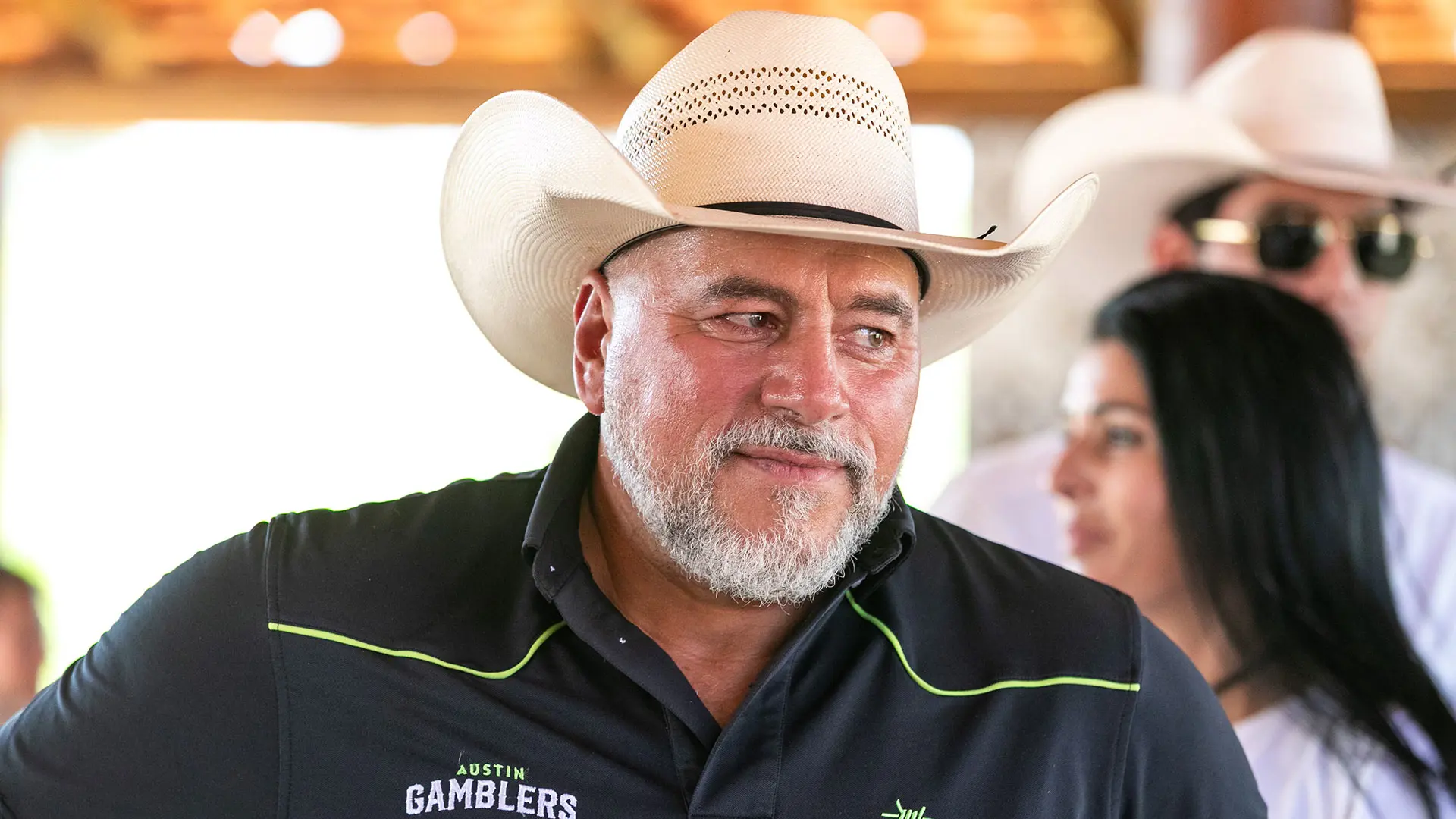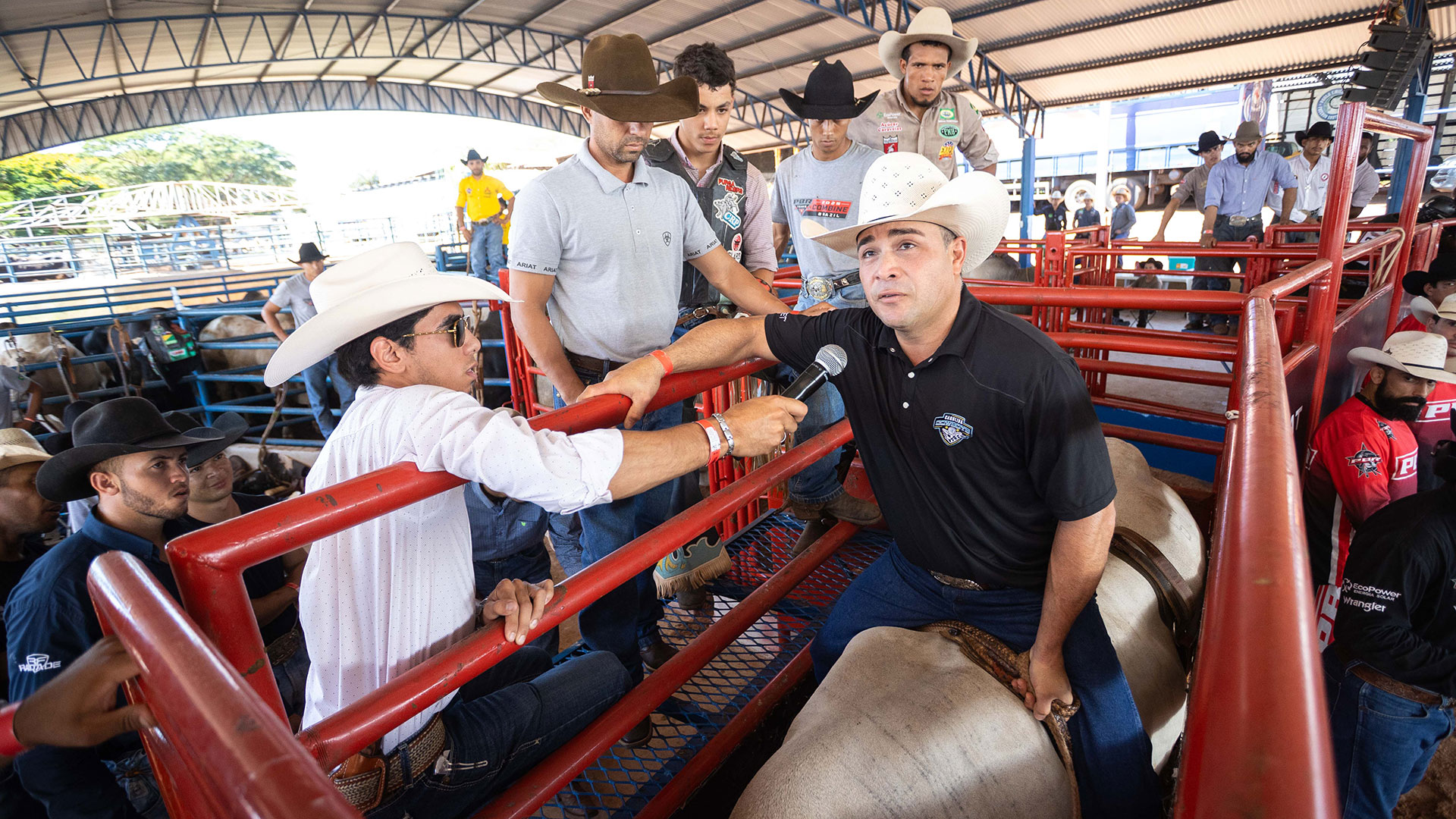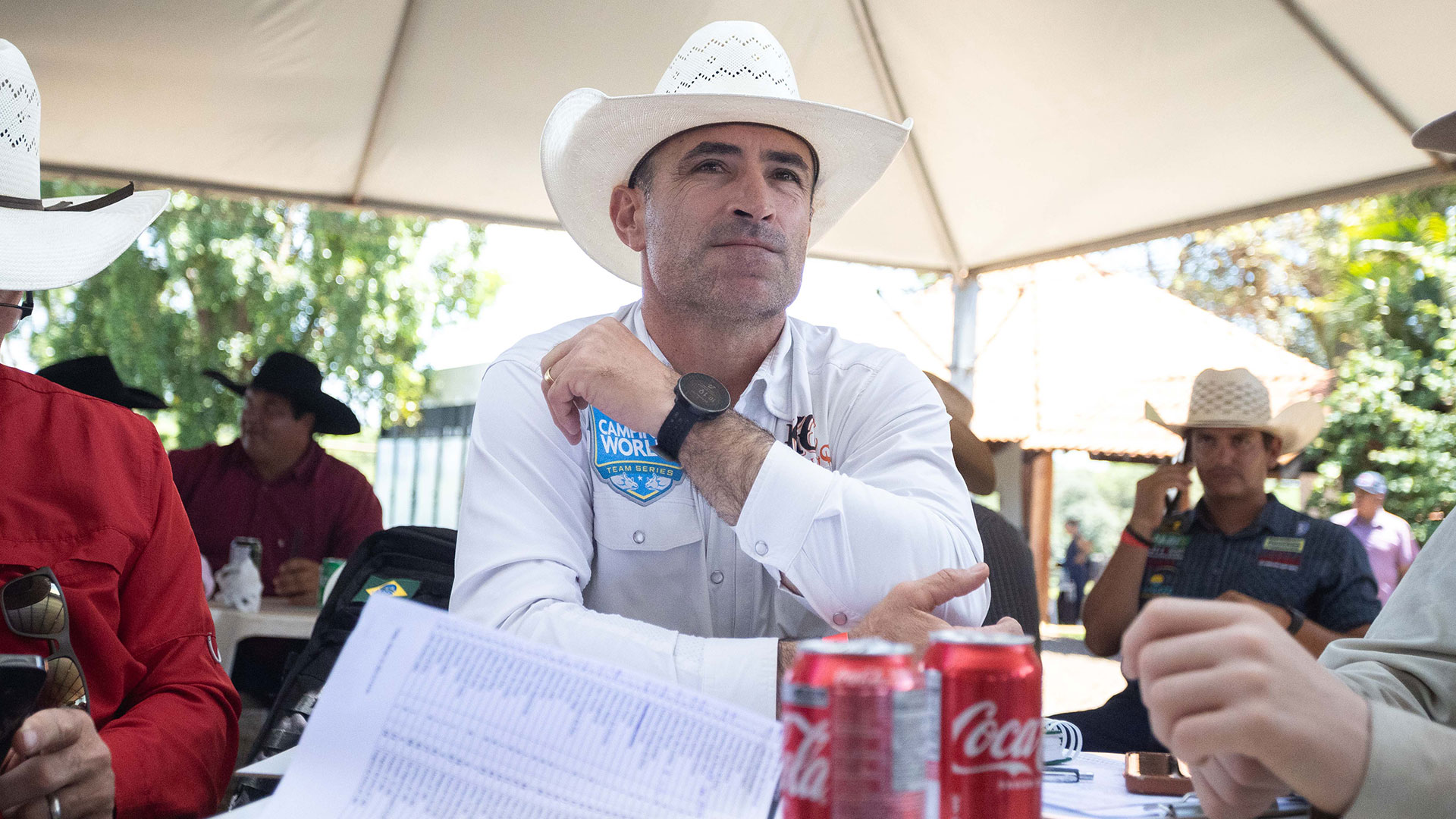
FORT WORTH, Texas – Adriano Moraes concluded the PBR Teams combine in Icem, Brazil, last week seated on a plastic patio chair. He was holding court with some of the best young bull riders the country has to offer, all of whom looked at the three-time World Champion with rapt attention.
For the three days the PBR was in Brazil, the Austin Gamblers’ Director of Brazil Operations had a prideful glow about him.
After all, as the first Brazilian bull rider in PBR history, he’s the reason any of this was happening in the first place.
“There were two or three guys (in the U.S.) before me, but they never stayed because it wasn’t worth it financially,” Moraes said. “Back then, it didn’t pay much, and here, it paid a lot, so it wasn’t worth it financially. So the guys, they went there and came back.
“I stayed because of the idea, the new concept – PBR. I stayed in the U.S., not because of the rodeo. I stayed because of the PBR. So much so that I rode two years in rodeos, and then I quit and stuck in the PBR because I loved the idea, the concept, building something, creating something new. I’m proud to be a part of that. So yes, I am the first one to be there, and I was alone for a few years. I don’t remember how long I was by myself, the solo Brazilian, but it was at least three or four years.”
Moraes won the inaugural PBR World Championship in 1994, and his compatriots slowly started following him to the United States. Florida Freedom head coach Paulo Crimber, 2002 World Champion Ednei Caminhas, Carolina Cowboys assistant coach Robson Palermo, and Kansas City Outlaws assistant coach and 2008 World Champion Guilherme Marchi were among the first wave.
“When I went there, there were six guys there. Now, there’s 200,” Palermo said with a laugh.
He’s not exaggerating, either. The explosion of Brazilian bull riders in the PBR has been out of this world. You don’t even have to look back that far to see a difference – just 10 years ago, in 2015, there were 12 Brazilians in the Top 35 of the standings. As things stand in 2025, there are 18.

It’s the chief reason representatives from all 10 PBR Teams squads were on hand in Icem to watch nearly 60 of Brazil’s best bull riders. The talent pool is vast, and the number of riders coming to the U.S. is only increasing.
“It’s big. A big change,” said Marchi, who was Brazilian rider No. 4 in the U.S. “I remember when I came to the United States, we worked so hard to make the dream come true. Today, everything is easy for those guys. They have cars, they have phones, they have everything. They have helpers drive them everywhere. And this is a big opportunity for them to have PBR come to the country to select riders to take over there. I wish we could do this when we first came to the United States. The teams are going to build you to success.”
Palermo echoed Marchi’s sentiment with a rueful shake of his head.
“If I had that kind of help, it would be unbelievable,” Palermo said. “That is unbelievable for those guys. You go to America, you already have a team to go to. You have money – some guys go over there and already have a contract and make money. And it’s easier to get a visa. I think the consulate is going to open up more for those guys going. But it’s very, very easy for those guys going over there now. And for the American people coming here to do that and help those guys go there and help with the visa with the consulate, this is awesome.”
RELATED: Riders whipped into shape on day two of PBR Teams combine in Brazil
For many of the riders taking part in the combine, showing their skills in front of some of the best bull riders in PBR history who are now coaches – the coaches in attendance had a combined eight gold buckles among them – was the biggest stage they’d ever faced in their careers.
“It was physically demanding, mentally demanding, having all these celebrities down here, all the World Champions, all the coaches, all the managers,” Moraes said. “It’s a little nerve-racking for the kids – a big show with important people in a situation that could change their lives. I feel like some guys got a little intimidated. But I like the format. We’ll probably continue doing the exact same format, and I think next year’s going to be even better.”
Most, if not all, team representatives left with a few names on their lists of potential riders to select in the 2025 PBR Teams draft in May.
And who knows – the next class of draftees could follow in the footsteps of Cassio Dias and Rafael Jose de Brito, who debuted in PBR Teams and won the World Championship in their rookie UTB season.
“People ask why Brazilians do so well in America, and I think it’s more that, when they go over there, they’re really hungry to win,” Palermo said. “If you go to America just for having fun, you’re not going to make it, and I think the American guys, they already have everything there for them. He knows the language, he knows the food, everything. I think for those guys, it’s much easier. When the Brazilian guys go over there, he doesn’t know nothing, and he’s got to get every single penny there. He’s working. If you make money there, then you can raise your family, you can buy a house, you can do this and that and live in America. Like me – I live there for 20 years now, and I have my place there. I have a house, I have a rental house and all that. And to see those young guys have the same dream to go there and do that and make money and build his stuff, it’s awesome to see that.”
That hunger doesn’t just start when riders make it to the United States. Many traveled long distances to be at the combine, with Deivid de Souza making the two-day trek from his home on buses.
“You know, when you ride a bus for two or three days – they come from way far from here because that kid wants something different for his life,” Marchi said. “And maybe he didn’t have success here this week, but that’s a good step for him to grow and see what he wants for his life.”

For the first generation of Brazilian bull riders in the PBR, being a coach and attending the combine was a chance to further give back after all the help they received when they were starting. Marchi mentored Gustavo Luiz da Silva when he was a 16-year-old – now, he’s at the PBR Teams combine as the No. 1 rider in PBR Brazil.
It’s safe to say the next generation is in good hands.
“I am proud and happy when I see this opportunity open up for so many Brazilians to change their lives,” Moraes said. “What PBR did for me, it gave me the opportunity to earn some money, change my social status, change my family’s lives too, and I can help much more people – my employees, my ranch and everything. So it’s a great thing, and PBR continues to do it, and now even greater. Guys now are making ten times more money than I did back then. PBR is growing so fast, and I’m very happy that PBR looked down at us and said, ‘Guys, we’re going to help,’ and they want to bring more guys.
“I’m happy. I’m happy that I’m one of the guys that paved the road for them.”
Photo courtesy of Andre Silva/PBR Brazil